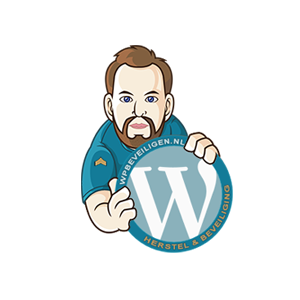WordPress for business: the advantages and disadvantages
WordPress for Businesses: Pros and Cons
When setting up a business website, you have various options. You can choose to hire a programmer-designer to develop a website with management capabilities, or you can opt for a WordPress website.
WordPress is currently the most popular Content Management System, and more and more entrepreneurs choose it for their business websites. So, what are the pros and cons of using WordPress for business websites?
The Advantages of WordPress for Businesses
There are several advantages of using WordPress for business websites:
- User-friendly: WordPress is easy to use for both beginners and experienced users, allowing them to develop beautiful websites.
- Continuous Development: WordPress receives an average of eight updates per year, ensuring continuous improvement and enhancement of the CMS.
- Abundance of Features: There are more than 40,000 plugins available for WordPress, offering limitless possibilities to customize and optimize your website according to your needs.
- SEO-Friendly: WordPress is designed with SEO in mind, providing many opportunities for search engine optimization and enabling your website to be well-ranked on Google.
- Cost-Effective: WordPress is open-source, which means you don’t need to pay for the system’s development. You may only need to pay for designing your WordPress website, or even nothing if you decide to do it yourself.
As you can see, WordPress for businesses offers various advantages. It is no wonder that WordPress is the most popular CMS today, as it is a user-friendly and cost-effective system that continually evolves, providing a plethora of functionalities while prioritizing search engine optimization.
The Disadvantages of WordPress for Businesses
Unfortunately, there are also some disadvantages associated with using WordPress for businesses. The main drawback is the issue of security. This is due to several factors:
- Open Source Code: WordPress has open-source code, which means anyone can access the code. Unfortunately, some individuals misuse this information for malicious purposes, leading to potential security vulnerabilities.
- Plugin Vulnerabilities: Although plugins provide extensive functionalities, some plugins may not be secure. Many plugins are infected with viruses or provide easy access to hackers.
- Lack of Security Guidance: While WordPress offers features to enhance website security, many users lack the knowledge of how to properly secure their websites. As a result, many WordPress websites become vulnerable to hacking.
To mitigate the security risks, users of WordPress should actively take measures to improve website security or seek professional help, such as WordPress website security services. Unfortunately, due to a lack of security knowledge among many users, WordPress websites often become susceptible to viruses and hacker attacks, which is the main disadvantage of using WordPress for businesses.
Conclusion
Using WordPress offers various benefits, such as user-friendliness, continuous development, extensive functionalities through plugins, SEO support, and cost-effectiveness. However, the main drawback is WordPress’s susceptibility to security risks. To avoid encountering viruses and hackers, WordPress users must take specific actions to enhance their website’s security or enlist professional assistance. Many WordPress users often face security challenges due to their lack of knowledge about the necessary security measures.
If you are still unsure about using WordPress, consider comparing your options before making a decision.

